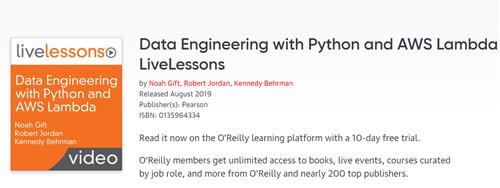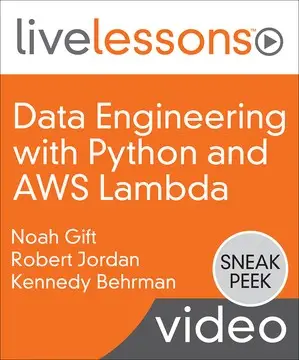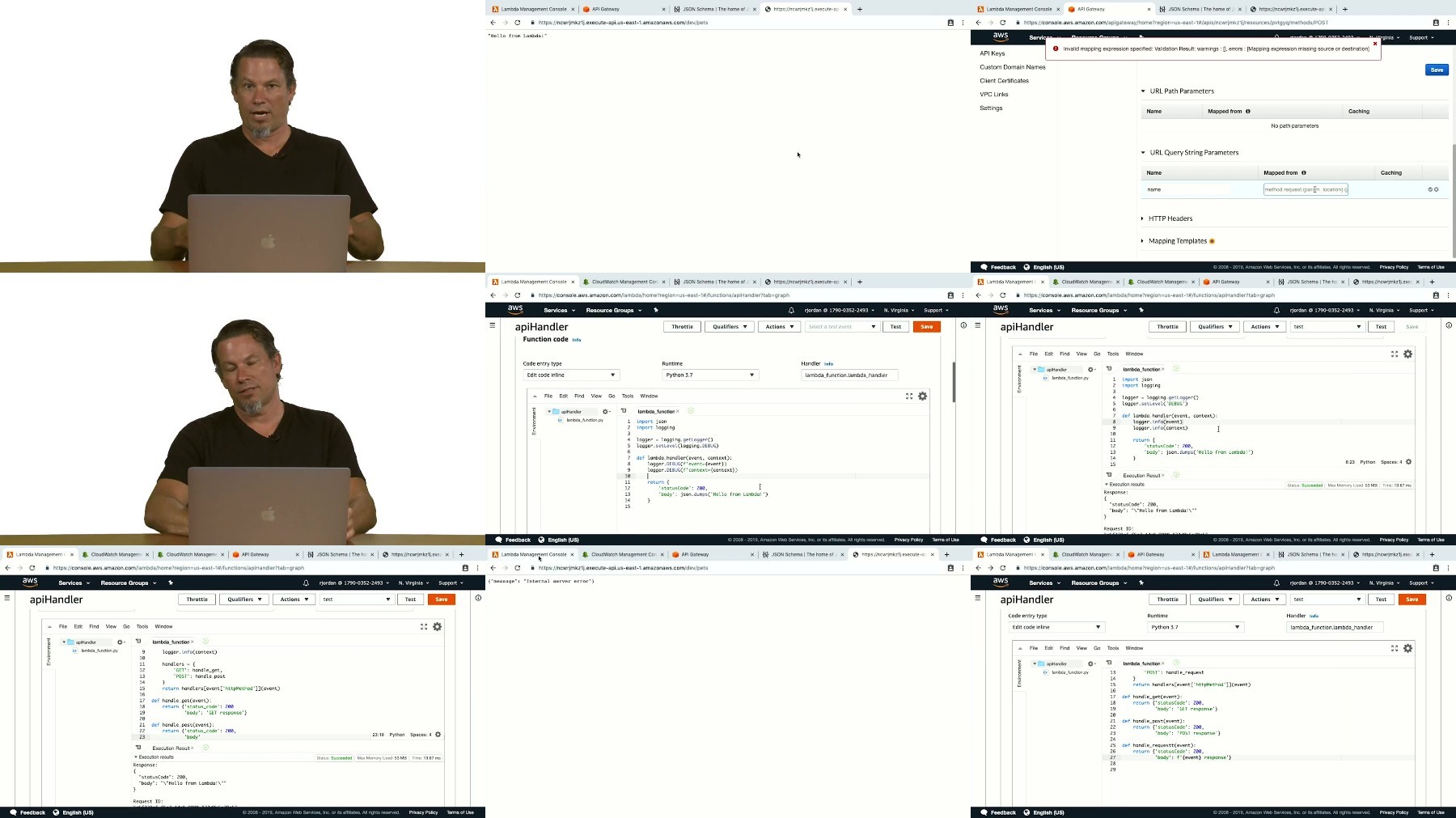
Free Download LiveLessons - Data Engineering with Python and AWS Lambda
Duration: 6h 24m | Video: .MP4, 1280x720 30 fps | Audio: AAC, 48 kHz, 2ch | Size: 1.61 GB
Genre: eLearning | Language: English
Data Engineering with Python and AWS Lambda LiveLessons shows users how to build complete and powerful data engineering pipelines in the same language that Data Scientists use to build Machine Learning models. By embracing serverless data engineering in Python, you can build highly scalable distributed systems on the back of the AWS backplane. Users learn to think in the new paradigm of serverless, which means to embrace events and event-driven programs that replace expensive and complicated servers.
Description
Some of the many benefits of programming with AWS Lambda in Python include no servers to manage, continuous scaling, and subsecond metering. Several use cases include data processing, stream processing, IoT backends, mobile, and web applications. Learn to take advantage of a new paradigm in software architecture that will make your code easier to write, maintain, and deploy.
AWS Lambda functions are the building blocks for creating sophisticated applications and services on AWS. In this LiveLesson, you learn to use Python to develop Lambda functions that communicate with key AWS services: API Gateway, SQS, and CloudWatch functions. You also learn how a new cloud-based development environment, Cloud9, can streamline writing, debugging, and deploying AWS Lambda functions.
About the Instructors
Noah Gift is a lecturer and consultant at both the UC Davis Graduate School of Management MSBA program and the Graduate Data Science program, MSDS, at Northwestern. He is teaching and designing graduate Machine Learning, AI, and Data Science courses, and consulting on Machine Learning and Cloud Architecture for students and faculty, including leading a multi-cloud certification initiative for students. Noah is a Python Software Foundation Fellow, AWS Subject Matter Expert (SME) on Machine Learning, AWS Certified Solutions Architect and AWS Academy Accredited Instructor, Google Certified Professional Cloud Architect, and Microsoft MTA on Python. Noah has published close to 100 technical publications, including two books on subjects ranging from Cloud Machine Learning to DevOps. Gift received an MBA from UC Davis, an M.S. in Computer Information Systems from Cal State Los Angeles, and a B.S. in Nutritional Science from Cal Poly San Luis Obispo. Currently, he is consulting startups and other companies on Machine Learning, Cloud Architecture, and CTO level consulting as the founder of Pragmatic AI Labs. His most recent book is Pragmatic AI: An Introduction to Cloud-Based Machine Learning (Pearson, 2018).
Robert Jordan is a visionary architect with more than 20 years of experience designing, implementing, and deploying production applications for some of the world's largest media and scientific customers. He has successfully led projects on all major cloud platforms and is currently certified on both AWS and GCP platforms.
Kennedy Behrman is a veteran consultant specializing in architecting and implementing cloud solutions for early-stage startups. He is experienced in data engineering, data science, AWS solutions, and engineering management, and has acted as a technical editor on a number of Python and data science-related publications. He has experience developing a training curriculum used in international economic development and more than a decade of hands-on Python experience. Kennedy has recently acted as both a content specialist for AWS Machine Learning certification development and as a technical editor for the book Pragmatic AI: An introduction to Cloud-Based Machine Learning (Pearson, 2018). He is also a founder of Pragmatic AI Labs.
What You Will Learn
Performing Data Engineering tasks on AWS
Developing with Cloud9
Writing AWS Lambda functions in Python
Implementing cloud-native Data Engineering patterns, i.e. serverless
Architecting event-driven architectures on the AWS platform using SQS, Python Lambda, and other AWS technologies
Recommend Download Link Hight Speed | Please Say Thanks Keep Topic Live
No Password - Links are Interchangeable









